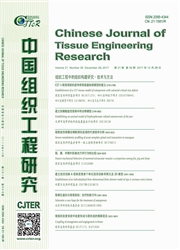

 中文摘要:
中文摘要:
背景:宿主与移植物间的免疫排斥反应是器官移植失败的主要原因之一,传统的免疫抑制剂已无法满足临床治疗的需求,抗体药物偶联物作为一类新型药物,可能为免疫排斥反应的治疗带来希望。 目的:综合分析抗体药物偶联物的构成、作用机制、临床研究进展以及未来的发展趋势。方法:以“抗体药物偶联物、免疫抑制剂、免疫毒素、器官移植、移植物排斥”,“ADCs,immunosuppressive agents,immunotoxins,organ transplantation,graft rejection”为检索词,应用计算机检索CNKI 和 PubMed数据库。同一领域文献选择近期发表或发表在权威杂志文章,排除与研究目的无关和内容重复者,保留43篇文献做进一步分析。 结果与结论:抗体药物偶联物以其高效低毒的特性在靶向治疗肿瘤方面已取得突破性进展,而在抗免疫排斥反应中仍处于摸索阶段。以同种胰岛移植为研究对象,寻找一种更有效阻断 CD8效应 T 细胞CD103/E-Cadherin通路的抗体药物偶联物,将可能成为同种器官移植抗排斥反应的新颖研究药物。
 英文摘要:
英文摘要:
BACKGROUND:The immunological rejection between host and graft is the leading cause of organ transplantation failure. The traditional immunosuppressive agents have been unable to meet the needs of clinical treatment. Antibody-drug conjugate, as a type of new drugs, may be hope for the treatment of immune rejection. OBJECTIVE:To comprehensively analyze the composition of antibody-drug conjugates, mechanism of action, clinical research progress as wel as the development trend. METHODS:A computer-based online retrieval was performed to search papers in CNKI and PubMed database using the key words of ADCs, immunosuppressive agents, immunotoxins, organ transplantation, graft rejection in Chinese and English. Recently published or published in the prestigious journals were selected in the same field. After excluding objective-independent papers and repeated studies, 42 papers were included for further analysis. RESULTS AND CONCLUSION:Antibody-drug conjugates, as highly effective and lowly toxic immunosuppressant, have achieved a breakthrough in treatment of targeting tumor, while the role of it in anti-immune rejection is stil at the exploratory stage. For islet transplantation, novel antibody-drug conjugates are required to block CD8+T effector by CD103/E-Cadherin pathway, and wil probably serve as a potential drug intervention for al ograft rejection.
 同期刊论文项目
同期刊论文项目
 同项目期刊论文
同项目期刊论文
 期刊信息
期刊信息
